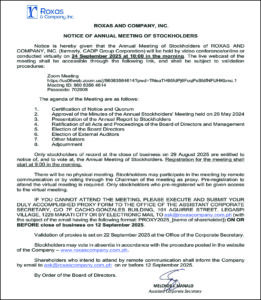THE PHILIPPINE government should stick to its fiscal consolidation plan and temper spending to ease fiscal strain, a congressional think tank said, warning that the country is “borrowing its way to growth.”
In an August report, the Congressional Policy and Budget Research Department (CPBRD) said the government risks diverting more funds to debt servicing at the expense of public programs in the future if current spending levels persist.
The government’s debt service program for this year is set at P2.051 trillion, based on the 2025 Budget of Expenditures and Sources of Financing.
“The Philippines is not outgrowing its debt,” the CPBRD said in a 24-page report by David Joseph Emmanuel Barua Yap, Jr., Jhoanne E. Aquino, and Rutcher M. Lacaza. “It appears to be borrowing its way to growth.”
“For every new peso of economic output, the government has added a proportional amount of debt, preventing the critical debt-to-GDP (gross domestic product) ratio from improving,” it added.
The CPBRD said that years since the Philippines moved past the coronavirus-related lockdowns, the government has retained its “pandemic-era” borrowing and spending patterns.
The Philippines’ debt-to-GDP ratio rose to 63.1% as of end-June, the highest since 2005, government data showed. This is above the 60% threshold considered by multilateral lenders to be manageable for developing economies.
The government aims to bring the debt ratio to 60.4% by yearend, and 56.9% by 2028.
Outstanding debt hit a record P17.27 trillion, as of end-June.
The Philippine economy expanded by 5.5% from April to June 2025, up from 5.4% in the first quarter, but was slower than the 6.5% growth in the same period last year.
Government resources were poured into health services during the coronavirus pandemic, with economic revival efforts later focused on massive infrastructure spending, leading to debt as a share of GDP ballooning to the current level from 39.6% in 2019.
Instead of creating new taxes or raising existing ones, the government should “live within its means” and moderate spending to ease its debt burden, the congressional think tank said.
“Burdening the private sector with a greater tax burden may prove counterproductive as it would constrain economic activity and hamstring economic growth,” it said. “It bears repeating that the Philippine economy is largely driven by demand — and taxes almost invariably reduce demand.”
FISCAL GUARDRAILSPolicymakers should impose fiscal guardrails to curb overspending, the CPBRD said, recommending that the national budget should not exceed 150% of revenue collections for three straight years, or that deficit spending be capped below a fixed threshold.
The Executive is set to submit to Congress on Aug. 13 the proposed P6.793-trillion spending plan for 2026, which is 7.4% higher than this year’s allocation and equivalent to 22% of the GDP.
“The magnitude of the proposed 2026 budget, and the accompanying budget deficit further reinforces concerns regarding the deficit-to-GDP ratio,” the CPBRD said.
From January to June, the government’s budget deficit widened 24.69% to P765.5 billion.
Still, the think tank sees the Philippines bringing its debt-to-GDP ratio below 60% by 2027, below the internationally accepted threshold provided economic growth holds, inflation stays contained and fiscal discipline is improved.
In its low-end scenario, the CPBRD sees debt falling to 61.1% of GDP by end-2025, then gradually easing to 60.6% in 2026, 59.6% in 2027, and 58.2% in 2028.
Meanwhile, its high-end scenario estimates the debt-to-GDP ratio dropping to 61.4% by yearend, 60.9% in 2026, 59.9% in 2027 and 58.5% in 2028.
“These projections are predicated on high economic growth, brisk revenue expansion, favorable macroeconomic conditions and the moderation of deficit spending as well as borrowing,” the think tank said. — Kenneth Christiane L. Basilio






